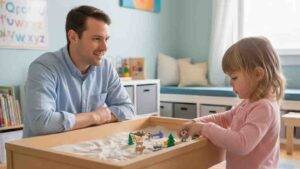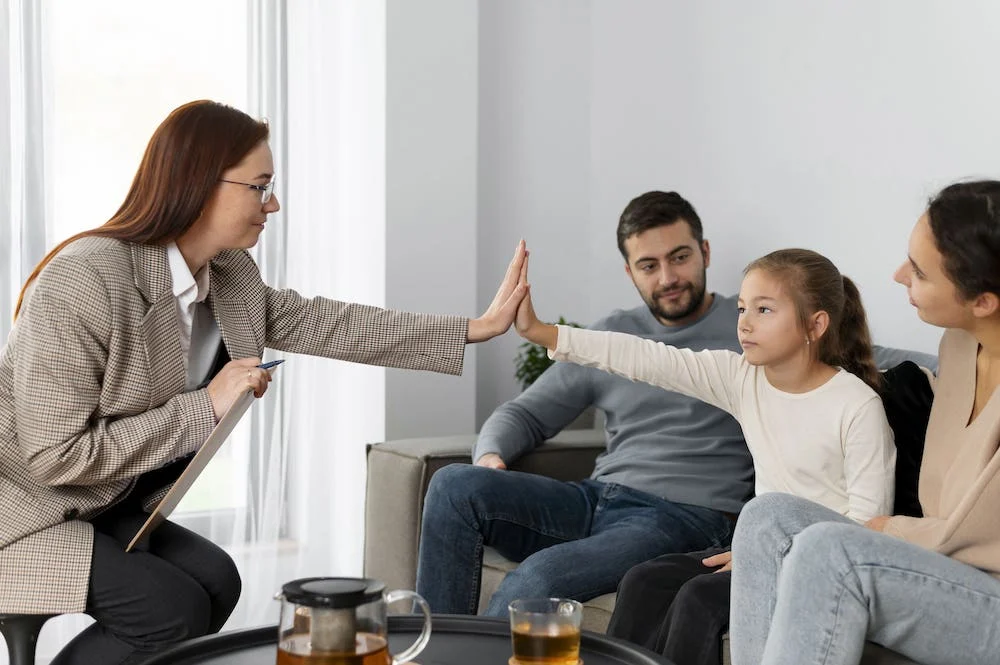Child Counseling
IN ARVADA, CO
Big Emotions Need a Safe Place to Land
Compassionate, evidence-based Child Psychotherapy to help your little one navigate a big world

Big Emotions, We have Solutions
"I Just Want My Happy Kid Back."
It is heartbreaking to watch your child struggle and feel like you can’t reach them. You might be noticing changes that worry you—behaviors that seem like more than just “a phase.”
Do any of these sound familiar?
-
The Explosion: Sudden outbursts of anger, aggression, or meltdowns over small things.
-
The Retreat: Withdrawing from family, hiding in their room, or losing interest in things they used to love.
-
The Physical Symptoms: Frequent stomach aches or headaches, especially on school mornings (School Refusal).
-
The Big Worries: Excessive fear about safety, separation anxiety, or needing constant reassurance.
If you are nodding your head, you are not failing as a parent. Your child is simply struggling to process their world, and they need a new set of tools to handle it.
OUR APPROACH
Why “Just Talking” Isn’t Enough

Toys Are Their Words. Play Is Their Language.
Adults process emotions by talking. Children process emotions by playing.
At 70 West Counseling, our child psychotherapists use Play Therapy and expressive arts to meet your child at their level. We don’t force them to sit on a couch and “explain” their anxiety. Instead, we enter their world.
Through a safe, structured play environment, your child learns to:
-
Name their feelings (moving from “acting out” to “speaking out”).
-
Regulate their body when they feel angry or scared.
-
Process trauma or difficult life changes at their own pace.
-
Build confidence and problem-solving skills.
Helping Your Child Thrive
Anxiety & Perfectionism For the child who worries about everything or melts down when they make a mistake. We teach them how to “talk back” to their worry brain and take risks again.
ADHD & Impulse Control We help children with ADHD understand how their unique brain works. We focus on building executive functioning skills, impulse control, and self-esteem in a world that often demands they “sit still.”
Trauma & Grief Whether it’s the loss of a loved one or a scary event, children hold trauma in their bodies. We provide trauma-informed care to help them release the fear and feel safe again.
Divorce & Family Changes Navigating two homes or a changing family dynamic is confusing. We offer a neutral space for your child to express their confusion and grief without worrying about “taking sides.”

Moving Beyond "Symptoms"
We Don't Fix Them in a Vacuum. We Partner With You.
You are the most important person in your child’s life. Therapy works best when we work as a team.
-
Parent Consultations: We schedule regular check-ins with you (without the child present) to discuss progress, patterns, and strategies you can use at home.
-
No Secrets: While we respect the child’s privacy to build trust, we will always inform you of safety concerns.
-
Practical Tools: We equip you with the language and techniques to de-escalate meltdowns and connect with your child when they are hurting.
High-Quality Care for Every Family Budget
We believe financial stress shouldn’t prevent your child from getting help.
-
Licensed Clinicians: Our experienced LPCs and Psychotherapists for complex cases.
-
Candidates & Interns: We offer sessions with our highly trained Master’s-level Interns and Candidates at a reduced rate. These clinicians receive rigorous supervision and bring fresh, up-to-date energy to their work with children. Ask about immediate availability.
FAQ
How do I know if my child needs therapy or if it's just a phase?
Trust your gut. If a behavior is interfering with their daily life (sleeping, eating, school, friendships) or if it has lasted longer than a few weeks, it is worth a consultation. Early intervention often prevents small struggles from becoming big problems.
Do I sit in the room with my child?
Usually, the first session is with just the parents to get a full history. For the child’s sessions, it depends on their age and needs. Often, we have the child in the room alone to build independence, but we may bring parents in for specific activities or “filial therapy” sessions.
How long does play therapy take?
Every child is unique. Some children need a few months to learn coping skills, while others dealing with deeper trauma may need longer support. We will review the treatment plan with you regularly.
Can a child be depressed without being sad?
Absolutely. In children under 12, depression often looks like irritability. If your child is constantly grumpy, defiant, or prone to outbursts, they may be struggling with depression. Therapy provides a safe place for them to learn how to express those big feelings with words rather than behaviors.
At what age can depression start?
Depression can appear as early as age 3; however, it is more common after puberty, around age 12.
Let’s Help Them Find Their Smile Again.
You don’t have to figure this out alone. Our team is ready to support your child and your whole family.
Ages 7+ | Play Therapy | Parent Support

